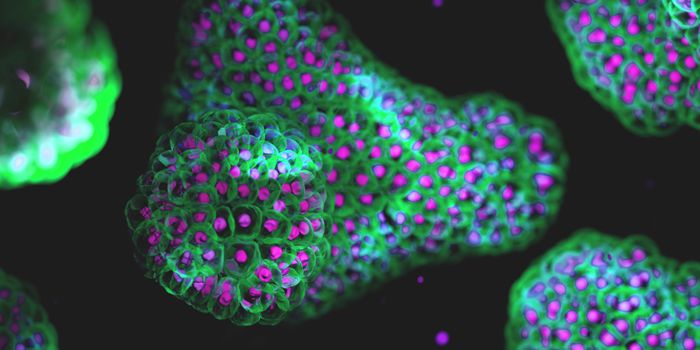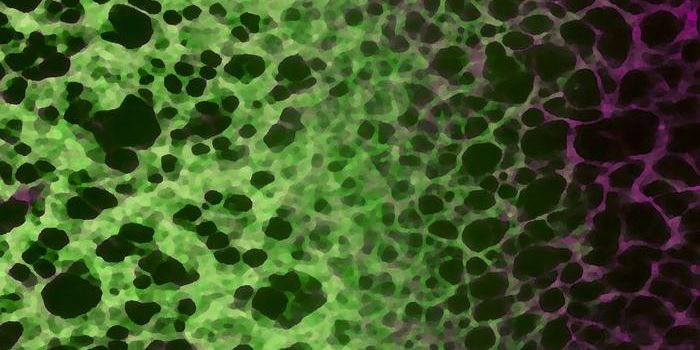Videos
Macrophage chasing down a bacterium
OCT 22, 2014 12:00 AM PDT
Share
Nature, Nurture, Noise
 How and how much living things are affected by nature vs. nurture has been an ongoing debate for many years. But, the whole picture is not so straight forward. For example, even identical twins raised in the same household are not exactly the same. They have different fingerprints, they may have different likes and dislikes, etc. Some of the non-physical differences can be caused by subtle differences in their environments, but there is another factor at play here, random noise.
How and how much living things are affected by nature vs. nurture has been an ongoing debate for many years. But, the whole picture is not so straight forward. For example, even identical twins raised in the same household are not exactly the same. They have different fingerprints, they may have different likes and dislikes, etc. Some of the non-physical differences can be caused by subtle differences in their environments, but there is another factor at play here, random noise. In recent years scientists have found that what goes on in cells is not regular and predictable. This is due to basic chemistry. When molecules move around they do so randomly, meaning that biochemical reactions that are based on them also have an element of randomness. So, two genetically identical cells in the same environment can behave completely differently. In an article in Quanta Magazine, Michael Elowitz, a physicist turned biologist at the California Institute of Technology said, "I had no clue how incredibly widespread and pervasive noise is within the cell. Now I see noise as a lens through which to look at all kinds of cellular behaviors."
The effects of noise can be deadly, or simply annoying. But, now scientists are discovering that noise can sometimes be helpful. "Noise can be both an obstacle for some types of cellular behaviors as well as a useful feature for others," Elowitz said. For example, some studies have shown that random fluctuations in microbial genes can cause some to go into a dormant, drug resistant state, allowing them to survive attacks by antibiotics. The HIV virus may also use noise to survive. A percentage of the pathogen becomes latent when it infects immune cells, letting it survive antiviral treatment. But, later the latent virus can become active. This is why HIV patients need to take their medications for the rest of their life.
Understanding noise can also shed light on the strange occurrence in genetics where some mutations don't affect all the individuals that carry them.
Chance plays a part in the development of parts of our body, too. Our nose, for instance, is capable of detecting thousands of different smells. This is because each of the cells in our nose randomly developed to detect just one type of odor, although scientists aren't sure exactly how this occurs.
Not all scientists agree on the importance that noise plays in biology. Ido Golding, a physicist at Baylor College of Medicine says, "I think there have been some examples, but there is danger of over-interpreting them. I would guess that 99 percent of the time, the cell is fighting unwanted fluctuations or finding ways to live with those fluctuations. Golding believes that some of the effects other scientists attribute to noise are actually due to deterministic factors they aren't yet able to measure. Though it's clear that there is some level of biochemical noise, "blaming noise every time you see differences among cells is a very dangerous thing,"
You May Also Like
Loading Comments...








